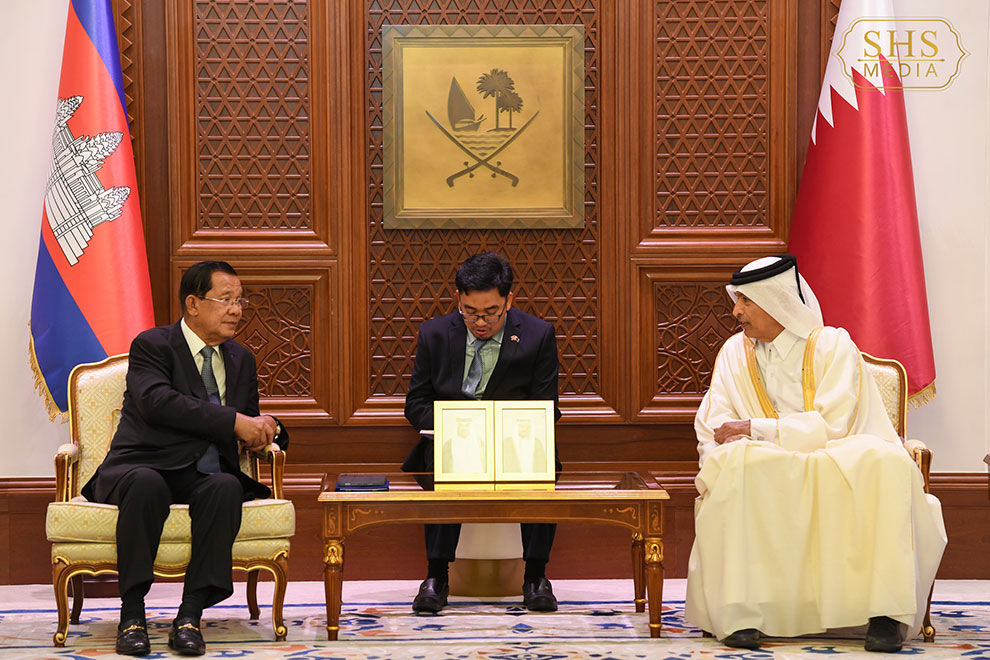
Senate president Hun Sen (left) meets with Hassan bin Abdullah Al Ghanim, speaker of the Qatar Shura Council, in Doha, Qatar, on December 10. SHS
Hun Sen, president of the Cambodian Senate, expressed his support for the idea of establishing an Asian Parliamentary Forum to address regional and global issues.
He discussed the concept during a December 10 meeting with Hassan bin Abdullah Al Ghanim, speaker of the Qatar Shura Council, in Doha, Qatar, during his week-long official visit to four countries in the region.
During the meeting, Al Ghanim noted that Qatar’s parliamentary relations with Asian countries, particularly within ASEAN, were not strong. He expressed interest in creating a parliamentary summit to strengthen ties and cooperation.
According to Hun Sen’s official Facebook page, the Qatari side hopes to work closely with him on this initiative. Al Ghanim highlighted Qatar’s pivotal role in regional and global affairs, particularly its contributions to mediating international conflicts such as those in Ukraine, Palestine and Afghanistan. He also commended Cambodia’s neutral stance on the Palestinian issue.
Hun Sen informed the Qatari side that Cambodia recently hosted the International Parliamentary Conference for Tolerance and Peace (IPTP), a mechanism which is still open to new member countries.
On bilateral relations, Hun Sen proposed that both countries work toward agreements on investment and trade protection.
“Our two nations must collaborate to establish agreements that support investment and trade. Qatar has energy security, while Cambodia has food security,” he said.
He also encouraged Qatari investors to explore opportunities in Cambodia and advocated for bilateral consultations between the foreign ministries of both nations.
Kin Phea, director of the Royal Academy of Cambodia’s Institute of International Relations, pointed out that while Qatar and its neighbouring countries are geographically close to ASEAN, their regional and bilateral ties with ASEAN member states remain weak.
He explained that such relationships are often shaped by economic and political interests. Middle Eastern countries, rich in oil resources, tend to have stronger ties with European nations, overlooking Southeast Asia in both political and commercial contexts.
Cultural and religious differences also contribute to the distance between the two regions. Even though some ASEAN countries share Islamic traditions, these differences impede closer people-to-people and regional connections.
“The lack of political, economic, social, cultural, and people-to-people interdependence explains why the ties remain weak. As a result, relationships between the two regions are limited,” he acknowledged.




.jpg)











